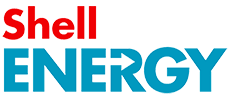What’s the most efficient source of energy?

Share this guide:
Last updated: 14 July 2021
Save money on your energy bills
Enter your postcode below to get started
What sources of energy are there?
We usually refer to energy sources as either renewable or non-renewable: those which replenish themselves, and those which don’t.
Renewable energy sources include, but are not limited to: solar power, wind power, tidal power, hydro power, biomass energy, and geothermal energy.
Non-renewable energy sources are predominantly fossil fuels – that’s coal, oil and natural gas. Nuclear power is also non-renewable, though unlike coal, oil and gas, production plants don’t produce any pollution.
What’s the most efficient source of energy?
Regardless of what energy source you use to power your home, there are steps you can take to make your energy usage more efficient. Read our guide to start making the most efficient use of your energy.
Solar, hydro, tidal and wind have been proven to be the most efficient sources of renewable energy, as long as they’re produced in the right location. Solar is typically considered to take the crown. Let’s explore these further.
Solar
As long as the sun shines, solar energy will be an extremely efficient energy source. Maintaining solar panels is relatively cheap and they come with a 15-25-year guarantee. Energy itself is free so it’s just the generation and distribution, not the sourcing, which costs. However, solar isn’t an efficient source in regions that see little sun, as maintenance costs outweigh the energy produced.
Hydro
as an energy source, hydro-electricity is extremely efficient, particularly if the rivers are snow-fed rather than rain-fed, as well as being inexpensive. However, there is some controversy around the impact dams have on rivers and wildlife and it is not readily available in most areas.
Tidal
Unlike the weather, tides are predictable. Tidal plants can therefore generate large amounts of energy consistently. However, electro-magnetic emissions are harmful to marine life, so while tidal power is efficient it’s not without its negatives.
Wind
Much like solar, wind power is a super-efficient form of energy when turbines are placed in the right location as they are relatively inexpensive to install and maintain. However, like many renewable energy sources, they are dependent on the weather: no wind, no energy.
Nuclear energy
Created by a process called nuclear fission, nuclear energy is one of the most powerful forms of non-renewable energy. Plants are extremely expensive to build and do create radioactive waste, however once up and running they produce huge amounts of energy from just a small amount of uranium. Very efficient, though not renewable.
What’s the least efficient source of energy?
For a long time, fossil fuels were an efficient source of energy, as coal, oil and gas were found in abundance. But as resources deplete, fossil fuels are becoming increasingly expensive as well as being both unsustainable and damaging to the environment. As investment in renewable energy sources grows and with our forward-thinking caps on, fossil fuels are only becoming less efficient over time.
For now though, we still rely heavily on fossil fuels to power our homes and most of our society. Some energy suppliers are making steps to reduce their dependence on fossil fuels and are committing to greener, renewable energy sources either now or as part of their future.
We are an independent and impartial price comparison website.
Our services are 100% free to use.
usave.co.uk is supported by its users. When you make a purchase through links on our site, we may earn an affiliate commission.
Don't miss these
-
-
How to Pay Your Energy BillsTariffs and Bills
-
-
Read on our blog

With the government poised to implement tough new measures to...

Budget broadband provider TalkTalk has been notifying customers via email...

A year-long investigation by charity Citizens Advice has revealed a...

Education Secretary Nadhim Zahawi has announced a new commitment to...






